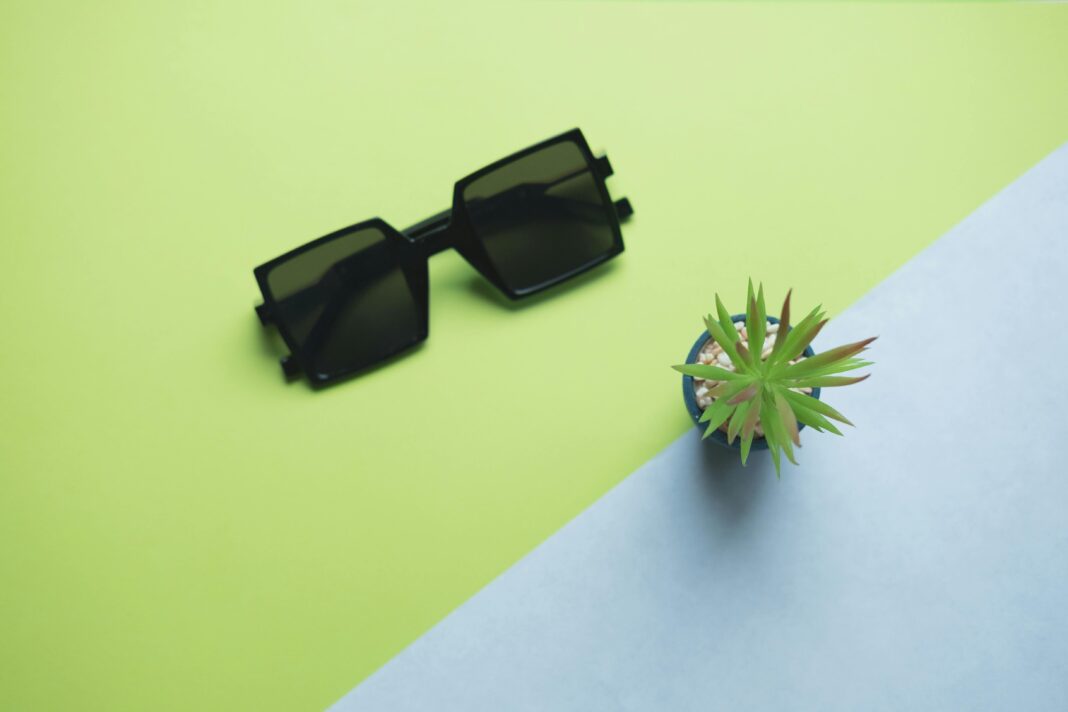Can Sunglasses Frames Really Be Sustainable? Brands That Use These Materials Say Yes
Plastic waste is an increasingly central element of environmental pollution. According to the UN, we produce a whopping 430 million tons of plastic every year and dump it just as quickly. On average, 2,000 garbage trucks’ worth of plastic is disposed into the environment every day.
Though significant contributors to plastic waste include things like cigarette butts and plastic bottles, caps, and bags, fashion also plays a big role. Popular accessories like sunglasses are one of the major culprits. More often than not, their frames are made of different kinds of plastic, like acetate, nylon, and resin, that pose additional threats to the environment once disposed of.
Yet, given their importance for things like sun protection and vision correction, we can’t ditch them as easily as we would plastic straws. That begs the question: can we make and use sustainable sunglasses frames? The answer is yes. Just look at the brands that show it’s possible to use these innovative materials.
Bio-acetate – Ray-Ban
 Sunglasses often use acetate because it’s lightweight and durable. Yet, though it’s considered a “lesser evil” that’s partially plant-based and eventually biodegrades, it’s only eco-friendly to a certain extent. Good on You explains it contains petroleum-derived chemicals dangerous to both plant and animal life, and it significantly contributes to microplastic pollution. Cellulose acetate, in particular, comprises half the plastic waste found in the Arctic.
Sunglasses often use acetate because it’s lightweight and durable. Yet, though it’s considered a “lesser evil” that’s partially plant-based and eventually biodegrades, it’s only eco-friendly to a certain extent. Good on You explains it contains petroleum-derived chemicals dangerous to both plant and animal life, and it significantly contributes to microplastic pollution. Cellulose acetate, in particular, comprises half the plastic waste found in the Arctic.
That’s why Ray-Ban is among the major brands turning to more sustainable alternatives. Ray-Ban sunglasses are known for their quality lenses, timeless frames, and innovations within the industry. The Aviator and Wayfarer, for example, boast iconic looks revered in pop culture, along with premium sun protection.
Every so often, they’re released in new cutting-edge designs like those found in the Reverse and Ray-Ban Meta series. Similarly, the brand caters to an increasing demand for more eco-friendly products. The bio-based frames on sunglasses like the Warren and Kiliane use . This more eco-friendly version of the plastic is derived from castor oil rather than petroleum, along with renewable sources like corn.
Recycled or Upcycled Plastic – Clean Waves
 Other brands take it in the opposite direction. Instead of producing new plastic, even of the plant-based variety, they focus directly on the waste already circulating in our waterways. There are plenty of initiatives dedicated to clearing oceans and rivers across the globe, including The Ocean Cleanup Project and The Clean Currents Coalition. However, they do more than just dispose of plastic waste in the right place. Many breathe new life into this debris by turning it into soap, clothes, and more.
Other brands take it in the opposite direction. Instead of producing new plastic, even of the plant-based variety, they focus directly on the waste already circulating in our waterways. There are plenty of initiatives dedicated to clearing oceans and rivers across the globe, including The Ocean Cleanup Project and The Clean Currents Coalition. However, they do more than just dispose of plastic waste in the right place. Many breathe new life into this debris by turning it into soap, clothes, and more.
Parley for the Oceans stands out in this regard. This network of thinkers and creators works in industries ranging from finance and fashion to space exploration to boost efforts to conserve the world’s waters. That’s resulted in several recycling and upcycling initiatives centered around ocean plastic, including the launch of its own circular luxury brand of eyewear touted by celebrity slash activists like M.I.A.
Clean Waves sunglasses are made from reclaimed marine plastic waste like fishing nets, making them a much more sustainable alternative. Yet the collection goes even further: all proceeds go to Parley for the Ocean’s cleanup efforts. What’s more, your pair will have unique GPS coordinates engraved onto the frames, telling you exactly where and how your purchase is funding the group’s initiatives.
Bamboo – GOWOOD
 Finally, eyewear brands show that sunglasses frames can be sustainable by avoiding plastic altogether. Though metals are an endlessly recyclable option, they’re ultimately finite. In contrast, wood is a renewable and biodegradable resource you can ethically procure through sustainably managed sources.
Finally, eyewear brands show that sunglasses frames can be sustainable by avoiding plastic altogether. Though metals are an endlessly recyclable option, they’re ultimately finite. In contrast, wood is a renewable and biodegradable resource you can ethically procure through sustainably managed sources.
Bamboo is especially great for this purpose. Compared to hardwood, it matures in years rather than decades. When made into frames, it’s also more durable and moisture-repellent. That’s probably why brands like GOWOOD tout bamboo among its vast collection of wooden products.
This Canadian brand is dedicated to sustainability and quality craftsmanship, which is why it sells everything from wooden watches to chargers and phone cases. However, its bamboo sunglasses are especially unique. Aside from frames that boast unique grain patterns, they also offer premium sun protection by using FDA-approved, CE-certified category 3 lenses that block 100% of UV rays. The best part is that you can get them at a particularly affordable price point, exemplifying how sunglasses with sustainable frames can be accessible.
